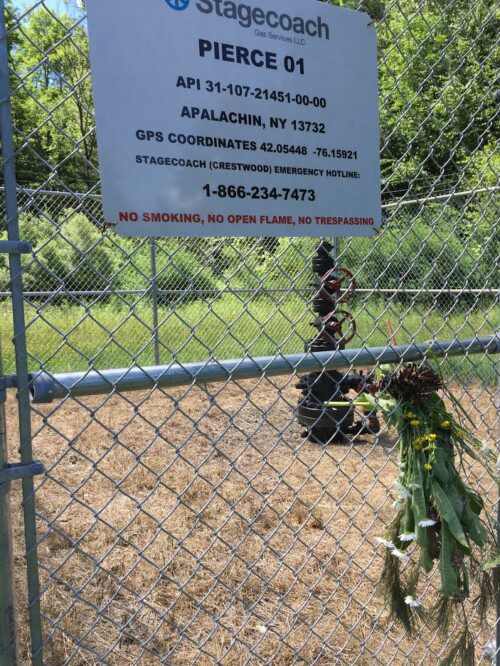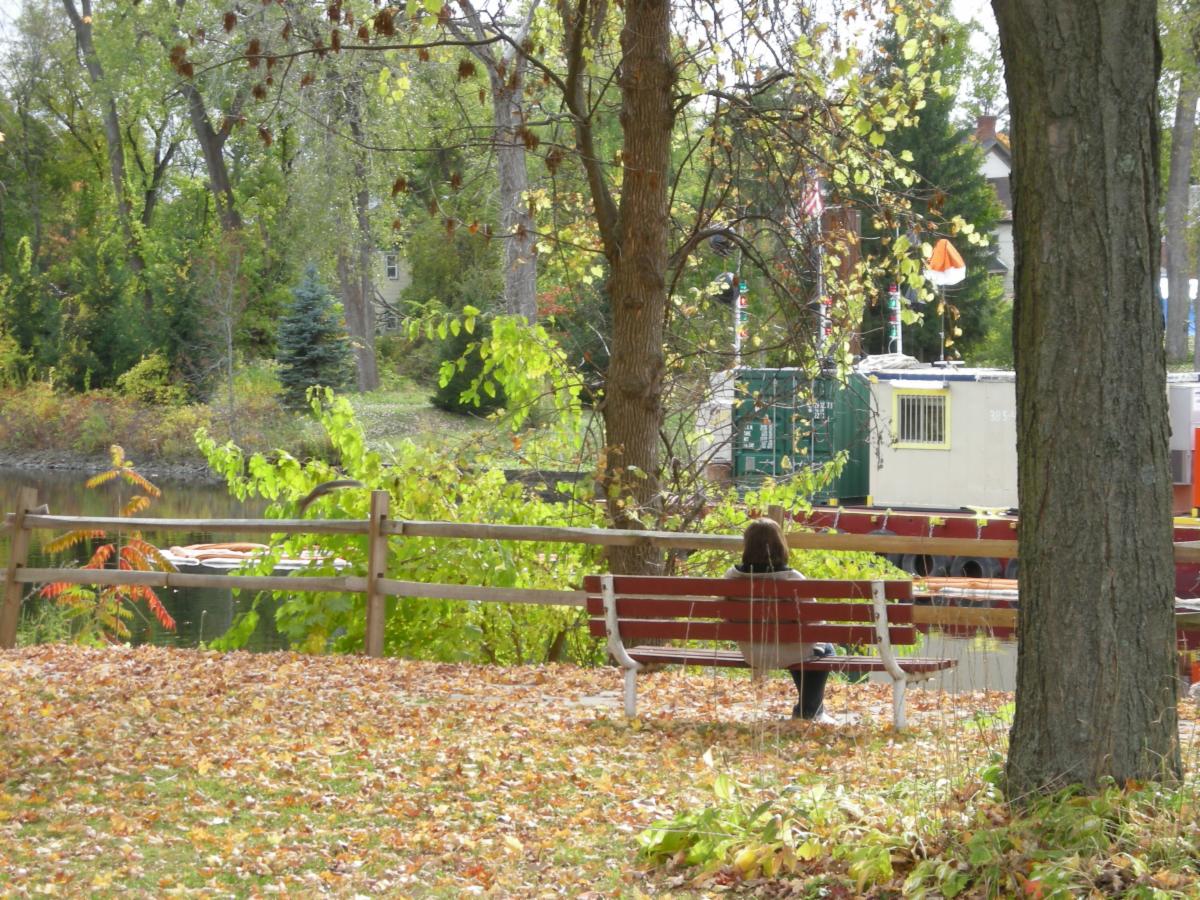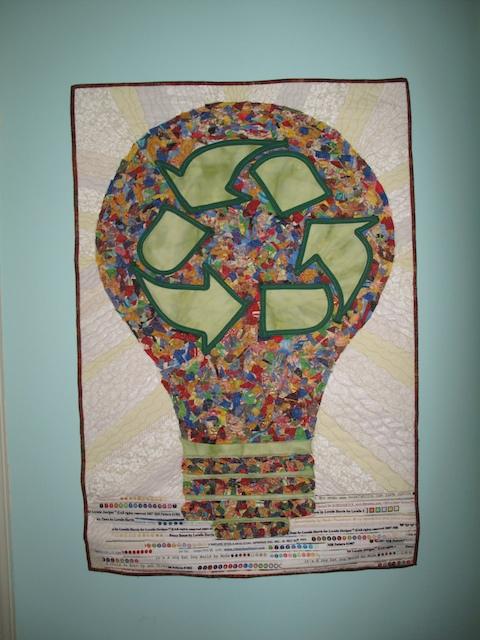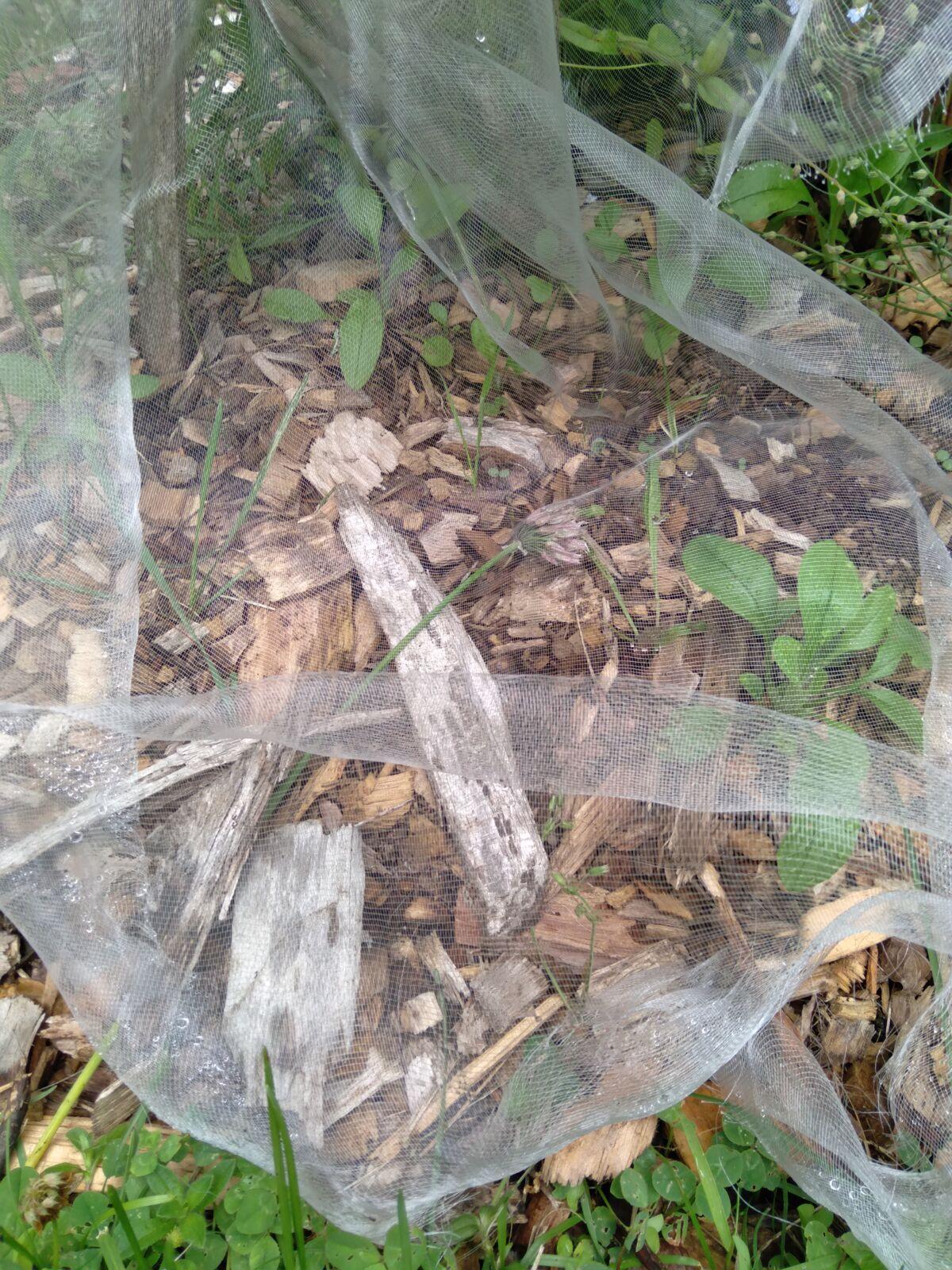
Sometimes the places in our lives that have been damaged become so familiar that we almost forgot how sad and angry we were when they were first damaged. We pass them every day, dulled to the beauty that is missing and the ugliness and waste that have overtaken it. That’s the kind of place Deborah Herman of Apalachin, New York chose to honor for this year’s Global Earth Exchange in June. Here is her story:
There are woods in back of my house that are very dear to me—I walk on the trails most of the year, and cross-country ski on them during the winter. Those woods and trails are one of the reasons I have never wanted to move away from here—we’ve lived her for 37 years, and consider them to be “our woods”, even though they’re not! About 20 years ago a gas company was given permission to clear a piece of land at the bottom of the hill and install a gas storage well. It was only in use for a couple of years, but the well and burner and other paraphernalia were left there. That part of the forest, which is pretty much at the hub of a number of woods trails, is now more of a meadow, as the trees never came back. So I thought it would be appropriate to attach my gift of beauty to the fencing surrounding the well. I made another bird and laid it on the ground near the well and tank.
What wounded places in your life have you gotten accustomed to tolerating? What would it be like to encounter them anew and give them a little attention and beauty?
Image Credit:
- Apalachin: Deborah Herman
MORE RADICAL JOY REVEALED
“There’s No Wounding Here”
Every now and then, around this time of year, in the weeks leading up to the Global Earth Exchange, someone emails to tell me they’d like to participate in our annual event of giving beauty [...]
Do It Though No One Notices
A young woman I know who lives in North Carolina considers herself an ardent environmental activist. She belongs to the Sierra Club and The Wilderness Society, works for an organization that runs therapeutic wilderness programs [...]
In Memory of a Cardinal
Radical Joy for Hard Times has always urged our members around the world to give attention and beauty to those places and beings that have meaning for them. It’s not necessary to seek out some [...]


